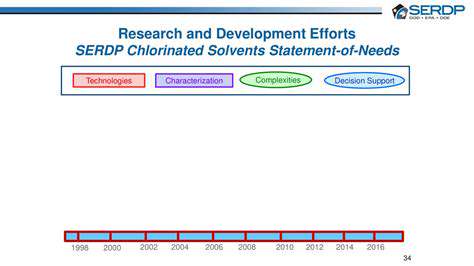The Future of Space Law and Property Rights

International Cooperation in Space
The future of space law hinges significantly on the willingness of nations to cooperate. International agreements and treaties are crucial for establishing clear guidelines and norms for space activities, ensuring responsible behavior, and preventing conflicts. Global collaboration is essential for addressing challenges like space debris, resource utilization, and the potential for weaponization of space. A strong framework of international cooperation will be vital for fostering a peaceful and sustainable future in space.
This cooperation needs to extend beyond the traditional spacefaring nations, encouraging participation from emerging space powers and fostering a sense of shared responsibility for the exploration and utilization of the cosmos. Open dialogue and a commitment to inclusive decision-making are paramount in shaping a future where space benefits all of humanity.
Addressing the Threat of Space Debris
Space debris, a growing concern, poses a significant threat to ongoing space activities. The accumulation of defunct satellites and rocket stages creates a hazardous environment for active spacecraft and future missions. Developing and implementing effective strategies for mitigating and managing space debris is essential for safeguarding space assets and ensuring the continued exploration and utilization of space. This includes promoting the responsible disposal of space objects and developing technologies for the removal of existing debris.
Resource Utilization and the Law of the Sea
The potential for utilizing resources in space, such as minerals and water ice, is generating significant interest. However, the legal framework governing these activities is still evolving. Exploration and exploitation of space resources require careful consideration of the existing legal principles and the potential implications for resource ownership and equitable access.
The application of principles from the Law of the Sea, which governs the use of resources in the oceans, may offer valuable guidance in developing relevant space law. However, critical consideration must be given to the unique characteristics of space, such as the lack of territorial sovereignty, to craft rules that are both effective and equitable.
Commercial Space Activities and Liability
The increasing commercialization of space activities brings new legal challenges. Defining liability in cases of accidents or damages caused by commercial space vehicles and ensuring that appropriate insurance mechanisms are in place is crucial. Establishing a robust legal framework to address issues of liability and compensation will be essential to fostering responsible commercial activity in space. This framework should balance the need to encourage innovation with the need to protect individuals, property, and other space assets.
The Role of Space Agencies and Private Companies
The collaboration between space agencies and private companies will be a defining factor in the future of space law. Clear guidelines and regulations are needed to govern the interactions between these entities, ensuring both responsible innovation and a safe and orderly space environment. The interaction between governmental and private players will likely involve joint ventures and the sharing of resources and knowledge. This collaboration will be instrumental in shaping the future of space exploration and utilization.











